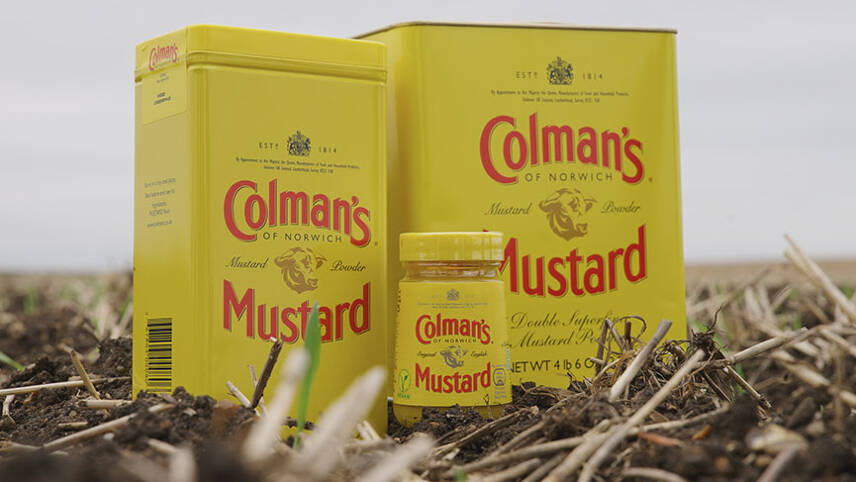Register for free and continue reading
Join our growing army of changemakers and get unlimited access to our premium content

The new regenerative programme will see Unilever provide expertise across mustard and mint farms around Norwich and Peterborough, with the first crop of the programme due to be sown next month. The crops will be used in Colman’s products.
Unilever will work with the English Mustard Growers, Norfolk Mint Growers, Farmacy and National Institute of Agricultural Botany (NIAB) to design and implement new practices aimed at reducing emissions and water use while boosting crop yields and increasing resiliency for the farmers’ yields.
Practices will be implemented to overcome climate-related challenges by trialling low-carbon fertiliser, crop nutrition strategies, planting crop variation and new digital water irrigation scheduling systems and reduced cultivation.
Unilever’s head of nutrition Andre Burger said: “Healthy soil should matter to all food businesses and as the climate crisis continues to impact the natural world, we need to not just protect but to help regenerate the soil and farmland used to grow the crops and ingredients we enjoy every day.
“Colman’s is a British condiment staple and our new regenerative agriculture project will help to ensure the sustainable supply and future of the delicious ingredients and farms that put the big flavour into our products.”
In 2021, Unilever presented its Regenerative Agriculture Principles, aimed at working with farmers, suppliers and partners to apply agricultural practices that can regenerate and protect soil, help ensure food security and supply chain resilience, and contribute to Unilever’s net-zero pathway.
Unilever has a target in place to invest in regenerative agriculture practices on 1.5 million hectares of land and forests globally by 2030.
The company will collect data on soil health, fertiliser use and impact, biodiversity, water use and carbon reductions in a bid to uncover new agriculture methods. The company will also focus on ensuring these impacts boost yields and farmer profitability.
Last year, Unilever implemented four different projects across different companies to examine and trial practices focused on regenerative farming. Trials across various different Unilever brands were held across Argentina, Spain, Italy and the US. edie Members can read the Unilever regenerative case study for more information.
Four projects were designed to implement new practices that addressed the challenges and unique needs of different crops and landscapes, while also providing a framework to measure the impact of implementation that the company hopes to apply to other sites.
The Sustainable Markets Initiative (SMI) estimates that just 15% of the world’s croplands by area size are farmed using regenerative practices at present, which could mean that much of the world’s agricultural land becomes unfit for purpose in the future.


Please login or Register to leave a comment.